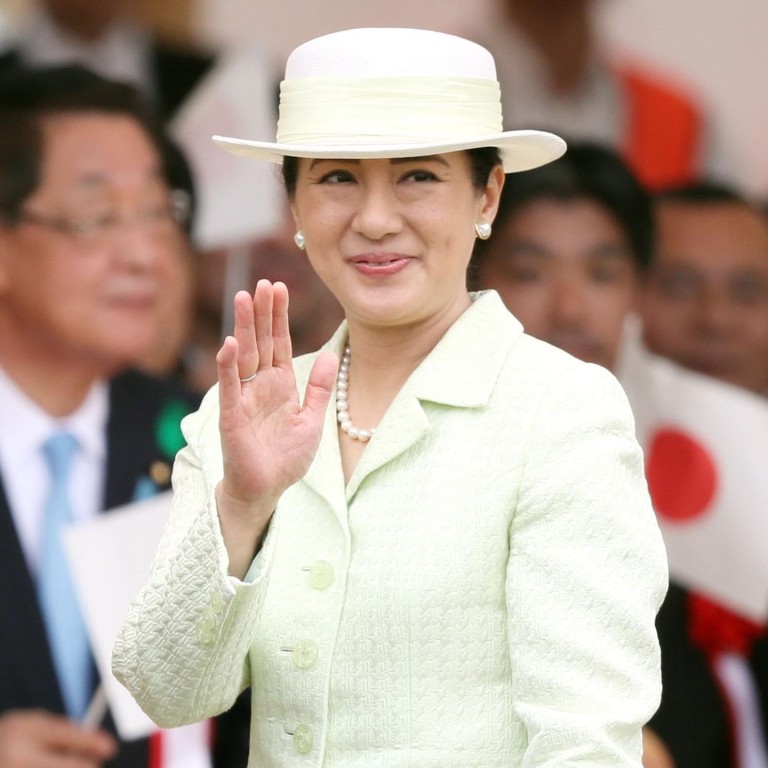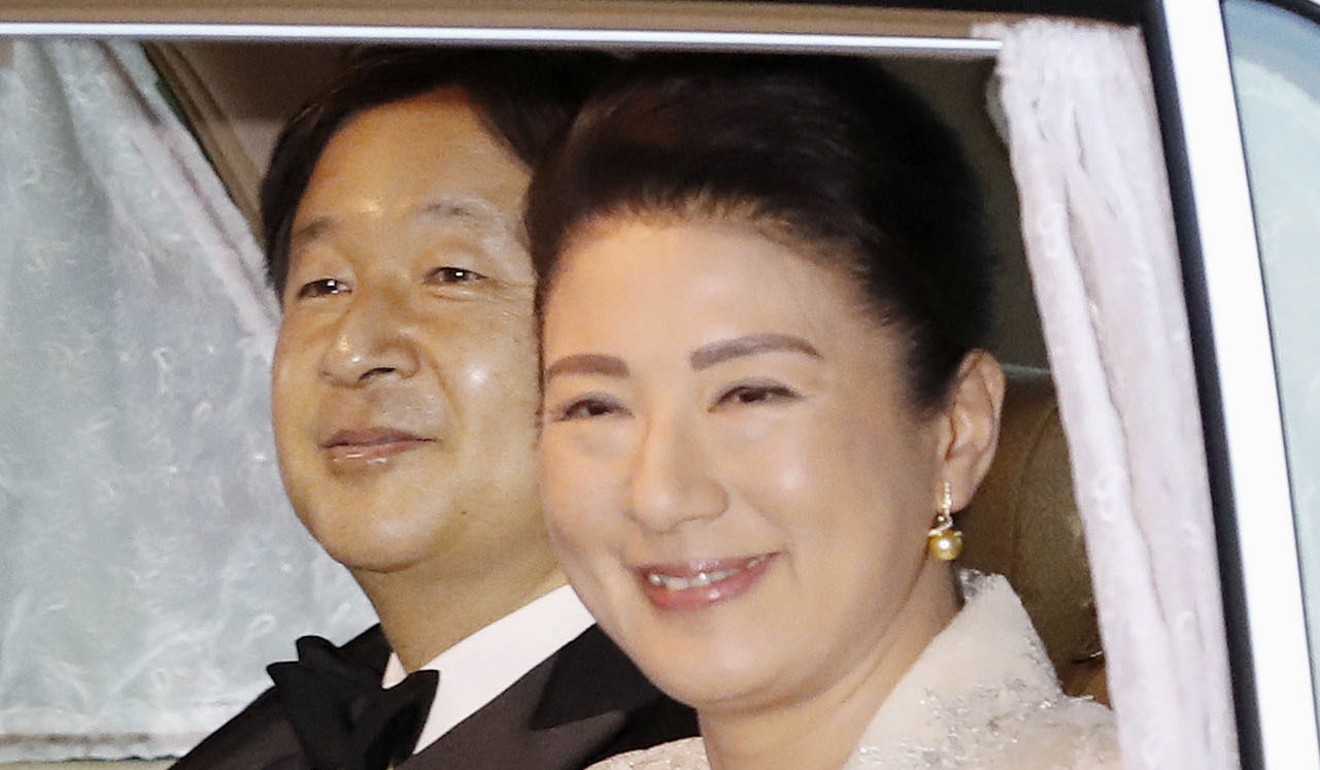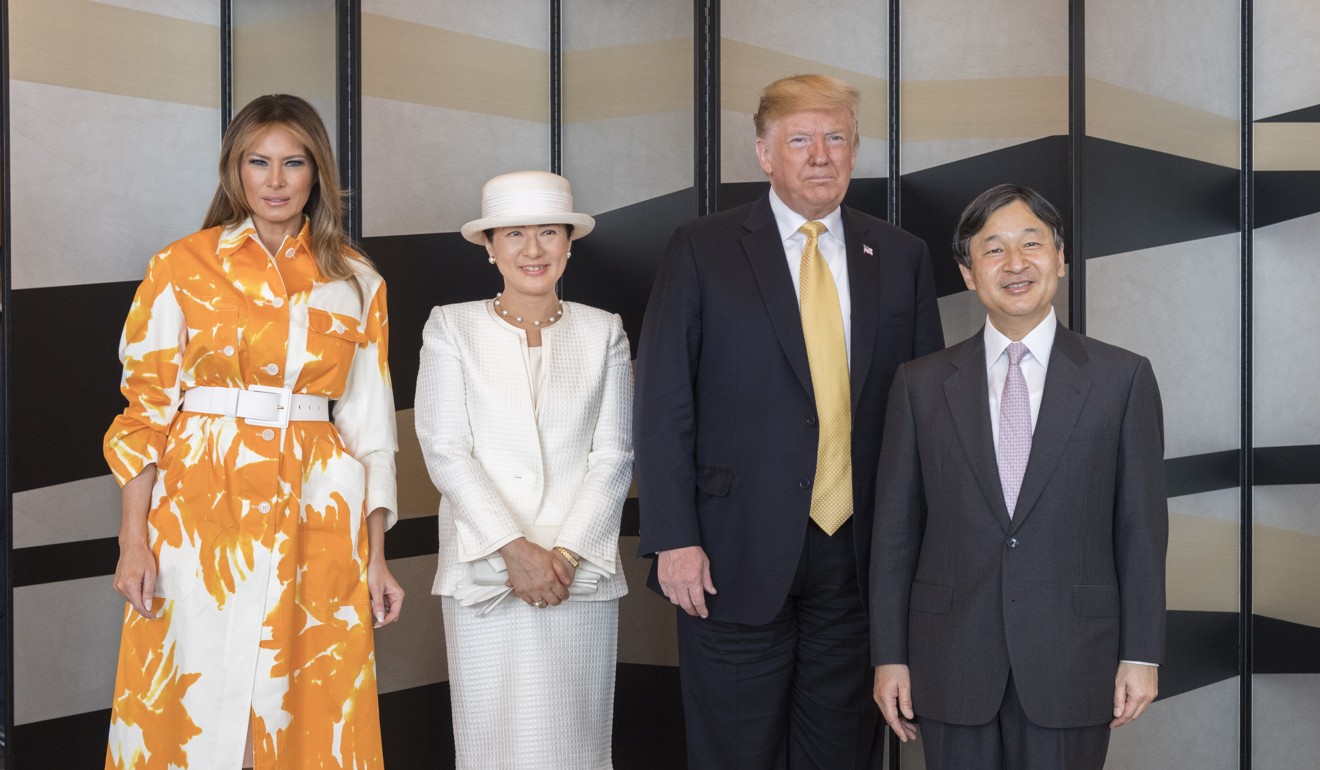
In Japan, Empress Masako shines in the spotlight after 16 years on the sidelines
- The new empress has surprised those who doubted she could handle the pressure of her imperial duties after the coronation of Emperor Naruhito
- She had barely been seen in public since 2003, but last month impressed watchers at a banquet attended by US President Donald Trump
Barely seen in public for more than a decade, there were some who feared her fragility might worsen under the weight of her new title and the responsibilities that go with being empress in the world’s longest-reigning royal dynasty.
The fear was that Masako might become a burden on her husband and more of a worry – potentially even an embarrassment – for the Imperial Household Agency. Instead, and with royal watchers scrutinising her every mood, she has defied expectations and is unquestionably thriving.
On May 22, Masako attended the annual meeting of the Japanese Red Cross Society in Tokyo, her first solo expedition as empress. Before a crowd of more than 1,900 people, she watched and applauded as organisations and individuals were recognised for their support for the society, and listened to reports.
The last time she attended the event was July 2003, a short while before she was diagnosed with what the palace has always termed an “adjustment disorder”.

Sixteen years later, she appeared confident and relaxed, and she smiled as she spoke with Red Cross officials. And even though she did not give a speech, the empress was clearly comfortable in her surroundings and role.
“There were a lot of people who said just before the emperor was crowned that Masako might struggle, including my own husband, but when he saw her on television last week he said she has never looked so good,” said Mieko Nakabayashi, a professor in the social sciences department of Tokyo’s Waseda University.
“The impression she gave is of someone who is extremely natural and nobody would say that she has been ill. And that is a relief for Japanese people.”
Rumours over Masako’s health have swirled ever since she first began to withdraw from the public eye, with the Imperial Household Agency’s refusal to address them only serving to heighten the gossip. Her illness was the result of pressure from the agency – seen as the power behind the Chrysanthemum Throne – to have a male heir, it was reported, while others claimed she was disappointed that the skills as a diplomat she had displayed before her marriage were not being put to use in the nation’s best interests, as she had been promised before her marriage to the prince.
Yet more tabloid tittle-tattle suggested she had clashed with the prince’s mother, now the empress emeritus, or her sister-in-law.
“We will never know the truth,” Nakabayashi said. “But even though the attention that she is getting now is more than when she was the crown princess, she appears to be doing very well.”
Dressed in traditional costume, the princess on May 8 took part in additional rites at the Imperial Palace related to the enthronement of her husband, worshipping at all three sanctuaries within the palace grounds. Later the same day, she accompanied Naruhito to a meeting with the departing Chinese ambassador to Japan, Cheng Yonghua.
Last weekend, she travelled to Aichi Prefecture, in central Japan, to take part in a tree-planting festival with local children. Speaking with one of the children as they planted a sapling, Masako said: “You did very well. I hope the tree that you have planted will grow up to be huge.”
“Personally, I’m just really happy to see her in good spirits and smiling again,” Nakabayashi said, a sentiment echoed by comments on social media.

“CNN reported that the empress did not need a translator to speak with Trump and Melania,” said one poster in the online version of the Bunshun news magazine. “That is really impressive and makes me proud.”
Another added, “She is great. It must have been a big change to marry into the imperial family after working for the Foreign Ministry … But the prince said he would always protect her, and that is what he has done.”
Yet another message said, “She is shining as empress. I’m so happy to see that.”
Noriko Hama, a professor of economics at Kyoto’s Doshisha University, said Masako looked “overwhelmingly better” than when she was crown princess.
“She looks as if she has been completely liberated,” Hama said. “We do not know why she was unwell before but obviously there were serious pressures on her, but now she looks happy and as if she is in her element at last.
“[Masako] is now doing all the things that she wanted and hoped to be able to do when she joined the imperial family. She comes across now as a thoroughly modern empress and maybe she is happier now because the Imperial Household Agency no longer has the influence it had over her when she was just the crown princess.”

